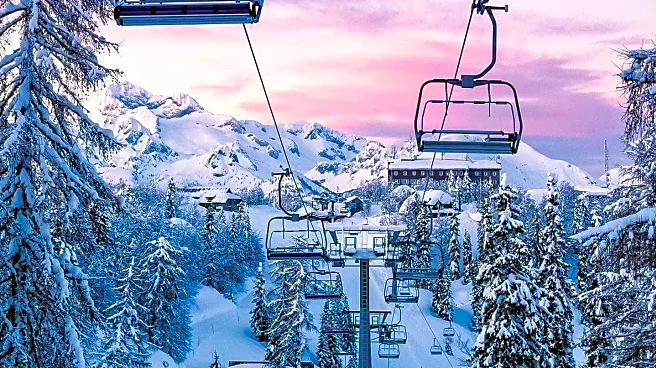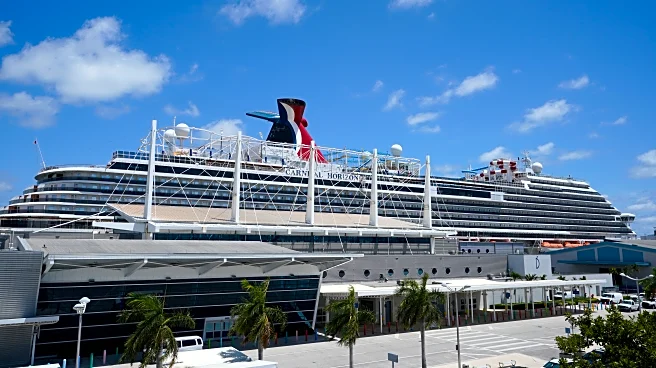What's Happening?
Skiing has become increasingly expensive across North America, with major resorts raising prices for day tickets and season passes. Revelstoke Mountain Resort in British Columbia has increased its early-bird
season pass price from $1,600 to $2,200, prompting locals like Emma Mains to seek alternative skiing options outside the resort. Similarly, Mike Akerman, a regular at Park City, Utah, has decided not to return due to the rising costs of ski passes and housing. Day tickets at some large resorts now exceed $300, making skiing a luxury endeavor. Despite the high costs, skiing remains popular, with record-high skier visits in recent years. Multi-mountain pass products like Vail Resorts' Epic Pass offer cheaper season passes but expensive day tickets, affecting locals who prefer impromptu ski days.
Why It's Important?
The rising costs of skiing are significant as they transform the sport into a luxury activity, potentially excluding middle-class families and local enthusiasts who cannot afford the high prices. This shift impacts the ski industry's accessibility and could lead to decreased participation among casual skiers. Smaller, independent mountains are attempting to keep skiing affordable, offering lower-priced day tickets and season passes. These efforts are crucial for maintaining the sport's inclusivity and supporting local economies dependent on winter tourism. The trend of increasing prices may also drive skiers to consider international destinations, where skiing can be more affordable even after accounting for travel expenses.
What's Next?
As prices continue to rise, ski resorts may face backlash from consumers and pressure to offer more affordable options. Vail Resorts has introduced Epic Friend Tickets, allowing pass holders to share discounted vouchers, indicating a potential shift towards more inclusive pricing strategies. Smaller resorts may gain popularity as skiers seek cost-effective alternatives. The industry might also see a shift in consumer behavior, with more people opting for international ski trips. Stakeholders, including resort operators and local governments, may need to address the affordability issue to sustain the sport's growth and accessibility.
Beyond the Headlines
The rising costs of skiing highlight broader economic trends affecting leisure activities, where luxury pricing models can lead to exclusivity. This development raises ethical questions about accessibility and the role of large corporations in shaping recreational opportunities. The shift may also influence cultural perceptions of skiing, traditionally seen as a communal and accessible sport, now becoming a status symbol. Long-term, this could impact the cultural fabric of ski towns, traditionally reliant on diverse visitor demographics.











